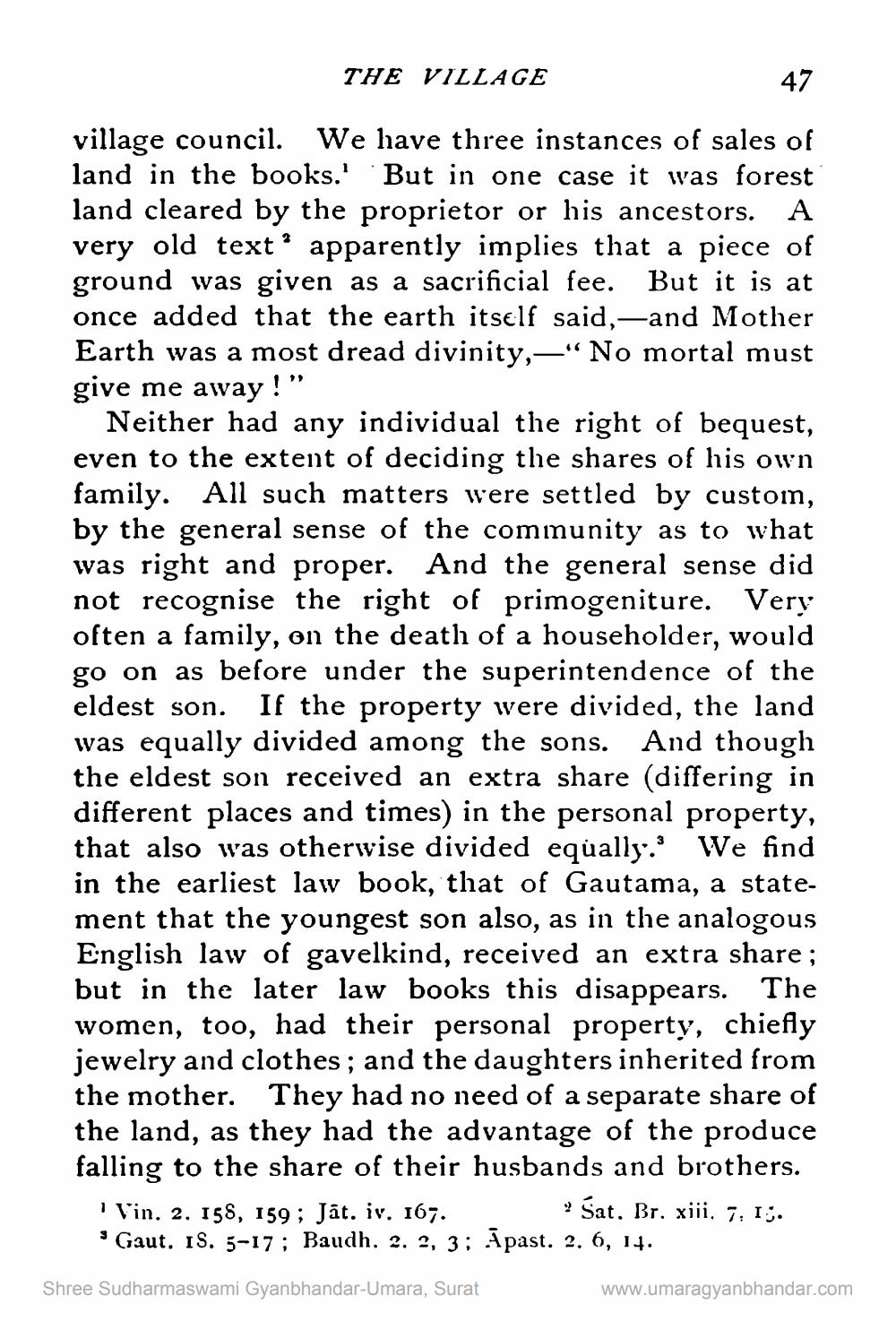________________
THE VILLAGE
47
village council. We have three instances of sales of land in the books.' But in one case it was forest land cleared by the proprietor or his ancestors. A very old text apparently implies that a piece of ground was given as a sacrificial fee. But it is at once added that the earth itself said,—and Mother Earth was a most dread divinity,—"No mortal must give me away!"
Neither had any individual the right of bequest, even to the extent of deciding the shares of his own family. All such matters were settled by custoin, by the general sense of the community as to what was right and proper. And the general sense did not recognise the right of primogeniture. Very often a family, on the death of a householder, would go on as before under the superintendence of the eldest son. If the property were divided, the land was equally divided among the sons. And though the eldest son received an extra share (differing in different places and times) in the personal property, that also was otherwise divided equally. We find in the earliest law book, that of Gautama, a statement that the youngest son also, as in the analogous English law of gavelkind, received an extra share; but in the later law books this disappears. The women, too, had their personal property, chiefly jewelry and clothes; and the daughters inherited from the mother. They had no need of a separate share of the land, as they had the advantage of the produce falling to the share of their husbands and brothers. I Vin. 2. 158, 159; Ját. iv. 167.
Sat. Br. xiii, 7. 13. * Gaut. 1S. 5–17; Baudh. 2. 2, 3; I past. 2. 6, 14.
Shree Sudharmaswami Gyanbhandar-Umara, Surat
www.umaragyanbhandar.com




